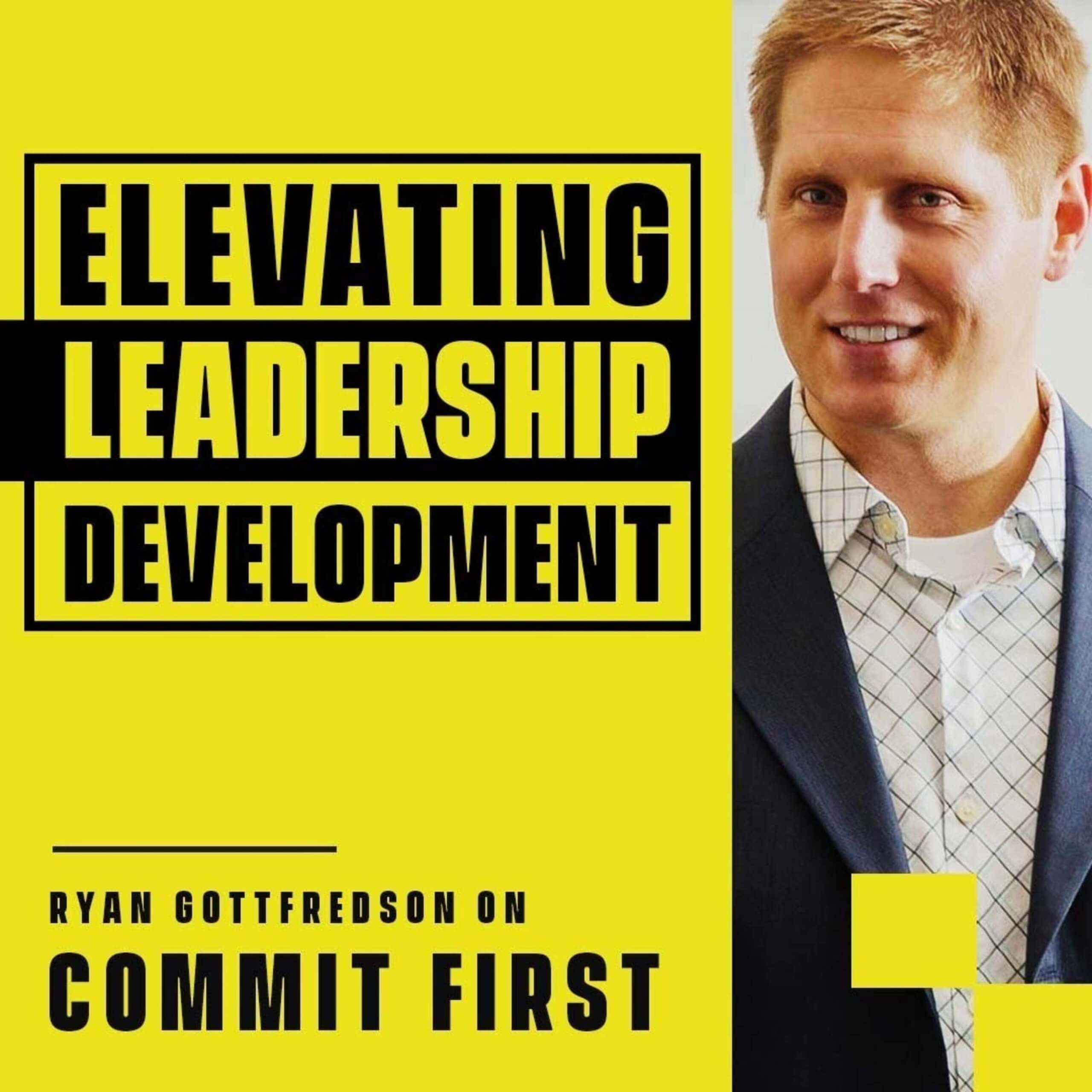Get Ready to Elevate Your Vertical Altitude
For this week’s episode, we have Ryan Gottfredson. This is his third time coming on the show and Ryan is all about mindset. So he’s a professor who wrote a book called “Success Mindsets”. He developed a theory that you have four types of mindsets.
But today we’re going to discuss the evolution of his research and his methodology, which is now called vertical development, which is another concept. He explained all about it, but we had such an amazing topic about what it takes for you to step up to your potential, to your best future itself. Also the three levels of where people are at at the moment. And kinda like you will be able to through this podcast kind of assess where you are.
Brought to you by….
Our very own app! Affirmations & Co – Crush Limiting Beliefs and Manifest Your Goals with Affirmations!
Follow others, get inspired by their affirmations and make them your own, add reminders of your OWN affirmations on your phone, and add widgets to help you manifest quickly!
Get it on the app store or Google Play:
iOS (Apple App Store) →
Android (Google Play) →
——————-
Timestamps & Gold Gems:
Topic : What is Vertical Development?
[10:29 – 14:10 ] Ryan Gottfredson :
“I came across a concept and the concept was coined from a guy at the center for creative leadership. And the concept is called vertical development. And I read this article. I’m like, oh my goodness, what is vertical development?”
“The idea behind vertical development is that there, well, what we need to understand is that there’s two different types of development. There’s horizontal development and there’s vertical development.”
So horizontal development is usually “what”, when we say development, we’re usually talking horizontal development. So it’s adding new knowledge, skills, and competencies to what we have. The focus of this is helping us to do more than what we could do previously. It’s kinda like adding an app onto an iPad, right?
But horizontal development is limited in the sense of, if I add an app onto an iPad, that’s not gonna improve how effectively that iPad operates as a whole.
“The technical definition is to elevate our ability to make meaning of our world in more cognitively and emotionally sophisticated ways.”
[15:29 – 16:17] Ryan Gottfredson
What feels cognitively and emotionally sophisticated. That we see it as an opportunity to learn and grow. We make meaning of it as that opportunity to learn and grow. When we make meaning of it in that way, then we embrace it. We take it in and, and this is not easy to do, right? Because we are getting to this mental place where we are good with being told that we are bad and it’s just not easy to get there, but it is really cognitively and emotionally sophisticated.
And so what we’re doing with vertical development is we’re literally upgrading ourselves. We’re leveling up so that when we encounter stressful situations, we make meaning of those in a better way so that we can navigate those more effectively.
Topic: Cognitive and emotional sophistication in adulthood
[20:22- 20:56] Ryan Gottfredson: So what they’ve identified is that there’s three primary adult development levels.
And what they found across all adults, 64% stay in that first level. They never develop beyond what they entered adulthood with the 35. Yeah. Yeah. Crazy 35% get to level two and only 1% get to level three. Wow. And so, part of the vertical development journey is understanding what are these three different levels and where am I at?
[21:19- 21:37] Ryan Gottfredson And so my next book is all about helping people answer that question. What is my vertical altitude and, and, and being able to assess that effectively, and then where do I go so that I could elevate and become more of the person that I want to become? How do I upgrade my own internal operating system?
Topic: The First Level
[21:59- 23:32] Ryan Gottfredson: “So at that base level, that first level, our internal operating system is programmed to keep us safe, comfortable, and feeling like we belong. Right. Which means that we are very conscious of threats to those needs. So we don’t like to feel unsafe, uncomfortable, or like we don’t belong. “
“We are generally what we would call dependent thinkers, meaning that we, we like to join and identify with tribes or groups that could be families that could be friends, social groups, religious affiliations, political affiliations, whatever it might be.”
“And when we go into these groups, we kind of say, I don’t wanna be the leader here. I don’t wanna make decisions, but if you tell me what to do, I will do it. Yeah. Provided that you keep me safe, comfortable, and feeling like I belong.”
Topic: The Second Level
[24:33- 25:20] Ryan Gottfredson: “And when we move into the second level, our needs are to stand out, advance and get ahead. Mm-hmm yeah. And in fact, we’re willing. To be, we become willing to be unsafe, uncomfortable and not belong in order to advance, stand out and get ahead. Mm-hmm . And when we make this shift, we move from being a dependent thinker to an independent thinker.
So we develop our own ideas. This is usually if somebody is an entrepreneur. They’re usually stepping from a mind 1.0, to a mind 2.0, right. Mm-hmm cause they’re being an entrepreneur is inherently unsafe, uncomfortable, and you’re not belonging. Right. So, and you’re willing and, and we’re usually driven in some form or fashion to stand out, advance and get ahead.”
Topic: The Third Level
[27:46- 29:52] Ryan Gottfredson: “To add value and to lift and, and we’ll, we’ll make a distinction about this here in just a minute, but when we get to mind 3.0, we are willing to be unsafe, uncomfortable, and not belong in order to contribute, add value and lift. We’re also willing to not stand out, to kind of put ourselves on the back burner to, um, not get ahead or not advance or not be seen and recognized.
In order to contribute, add value and lift and, and what’s what’s going on here is, is you can hopefully feel is the differences. We, when we operate below this mind 3.0 level. So on mind, 1.0 or 2.0, our primary focus is inward on ourselves. Either us standing in or us standing out when we’re in this mind, 3.0 level, our focus is not on ourselves anymore.
It’s something external to ourselves, a bigger purpose, and we’re driven again, to contribute, add value and to lift. And when we’re here, we’re not dependent thinkers, we’re not independent thinkers. We are interdependent thinkers. We can see and hold multiple perspectives simultaneously. We kind of don’t, we don’t rush to one way or the other.
Topic: Realization
[33:54- 34:21 ] Ryan Gottfredson:
“We are gonna have a center of gravity that we fall back to for the majority of the time, particularly in, in kind of stressful and pressure situations. Um, and so to me, um, what that suggests when we look at it through that lens is, is not only should we focus on elevating vertically, but then how do I spend a greater amount of my time in mind, 3.0, right.”
[50:23- 50:43] Ryan Gottfredson:
I learn about mindsets and I find out that my mindsets are crap. I’ve got negative mindsets. I awaken into that. I work on them and I shift my mindsets and I feel like as soon as I started to work on my mindsets, that’s when I was. Okay. I’m gonna be an entrepreneur. I’m gonna write a book. I’m gonna try to build this business
[54:41- 55:45] Ryan Gottfredson: What is my relationship with money? What is my relationship with my family? What is my relationship with, um, achievement? Right? We could ask ourselves what is my relationship and, and our relationship with those things gives us a sense of our vertical altitude and what, what mind level we primarily operate at.
But the most important relationship is what I’m learning in, in this vertical development journey is the relationship with ourselves. What is my relationship with myself. And, and honestly, two years ago, I would’ve said I had a good relationship. Now, given the journey I’ve been on, I would say two years ago, my relationship with myself was crap.
And I’m in a much better place with myself. And because I’m in a much better place with myself, I feel like I have less holes that I’m needing to fill. Yeah. Um, I’m better able to value others and work more independently with them. Um, and, and it really, when I heal my relationship with myself, I’m healing my relationships with everything else, time, family money, etc.”
[54:41- 55:45] Sagi Shrieber: “So we got one is, um, you know, go for therapy and it’s, it’s, it’s a great way of finding and working yourself and, you know, starting to get there.
Um, two is, um, gratitude, journaling, three meditation, um, four, try to make space on a constant basis, like, you know, in order to do those things.”
RESOURCES:
Books Mentioned:
Title: Success mindsets
Author: Ryan Gottfredson
Link: https://ryangottfredson.com/books
Title: Vertical Development
Author: Ryan Gottfredson
Link: https://ryangottfredson.com/books
Title: Four Thousand Weeks: Time Management for Mortals
Author: Oliver Burkeman
Link: https://www.amazon.com/Four-Thousand-Weeks-Management-Mortals/dp/0374159122
Title: The Body Keeps the Score: Brain, Mind, and Body in the Healing of Trauma
Author: Bessel van der Kolk
Link: https://www.amazon.com/Body-Keeps-Score-Healing-Trauma/dp/0143127748
Title: Hit Refresh: The Quest to Rediscover Microsoft’s Soul and Imagine a Better Future for Everyone
Author: Satya Nadella
Link: https://www.amazon.com/Hit-Refresh-Rediscover-Microsofts-Everyone-ebook/dp/B01HOT5SQA
Title: Creativity, Inc.: Overcoming the Unseen Forces That Stand in the Way of True Inspiration
Author: Ed Catmull
Link: https://www.amazon.com/Creativity-Inc-Overcoming-Unseen-Inspiration/dp/0812993012
Title: American Icon: Alan Mulally and the Fight to Save Ford Motor Company
Author: Bryce G. Hoffman
Link: https://www.amazon.com/American-Icon-Mulally-Fight-Company/dp/0307886069
Ryan Gottfredson’s website
Notes from the universe
https://www.tut.com/notes-from-the-universe/
Previous Podcasts with Ryan Gottfredson:
Episode 51: Understand the types of Mindsets before you try to fix yours – (w/ Ryan Gottfredson, Ph.D)
Episode 97: The 4 Types of Mindsets (w/ Ryan Gottfredson)
https://www.audible.com/pd/Episode-97-The-4-Types-of-Mindsets-w-Ryan-Gottfredson-Podcast/B09FLV5GG3
——————-
Commit First is a Personal Development Podcast for Entrepreneurs and can be found on:
Our website →
Apple Podcasts →
Spotify ->
Youtube →
Or on any other favorite podcast player app.
————–
? Be sure to follow Sagi Shrieber on Instagram
→ https://www.instagram.com/sagishrieber/

